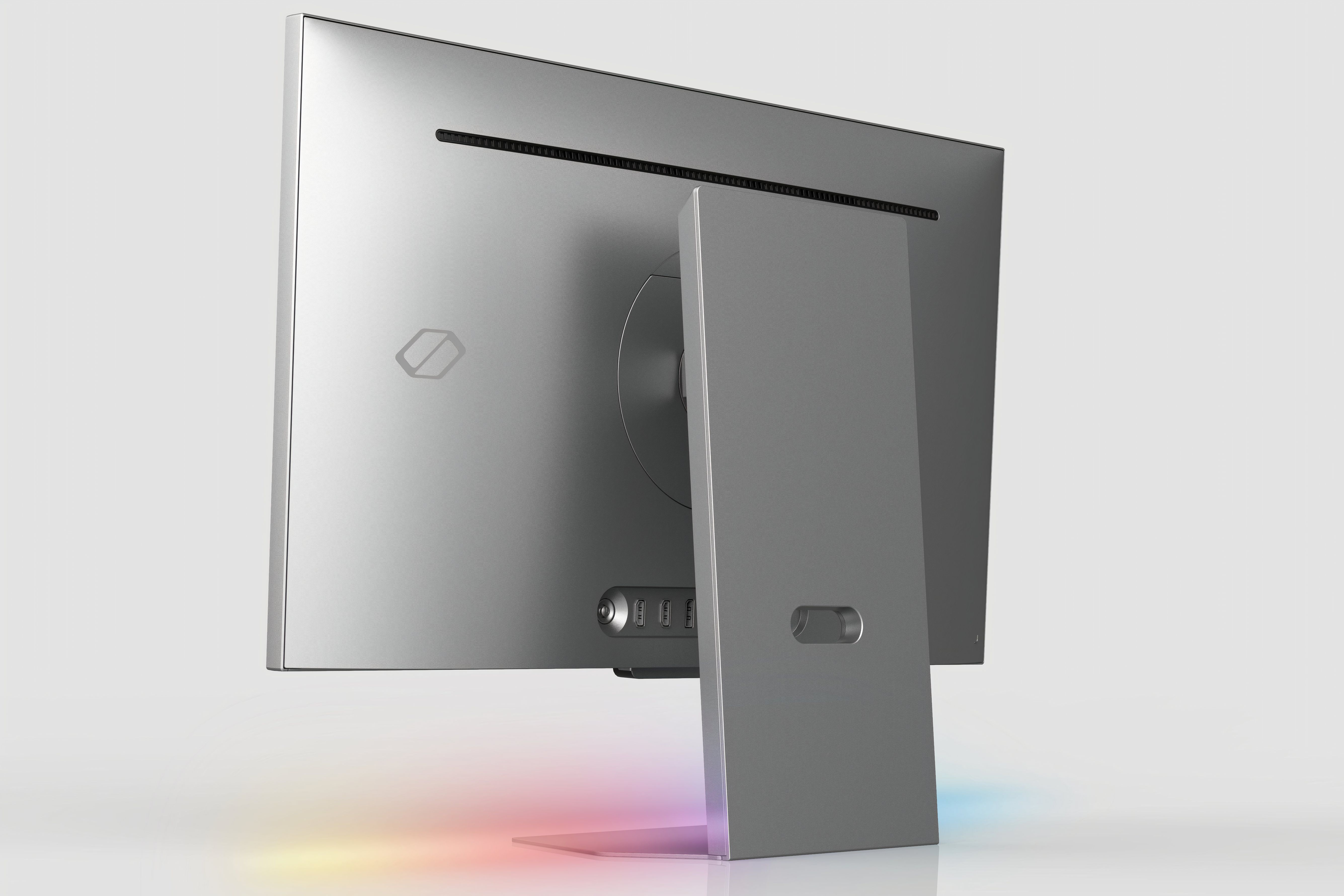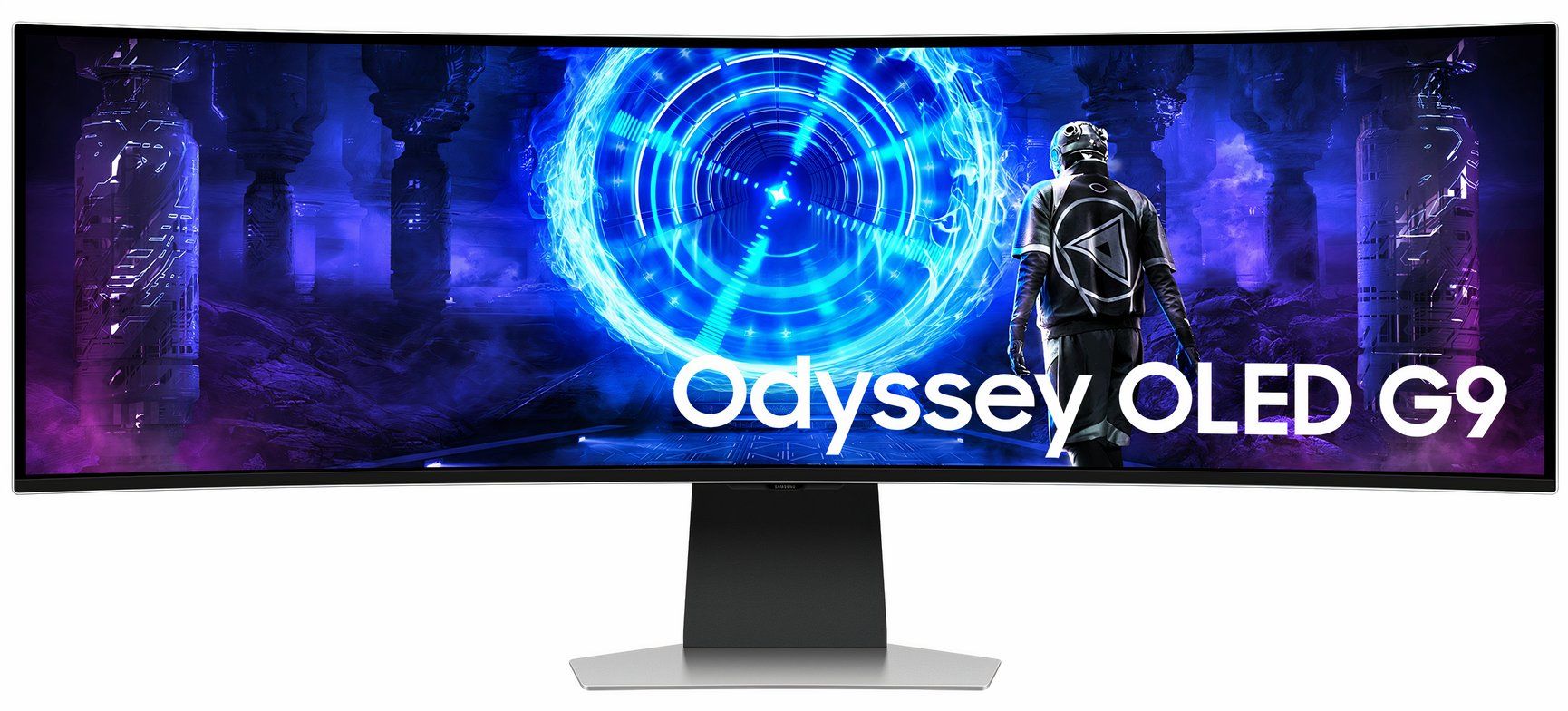3D monitors seem to be making a comeback, and Samsung is joining the party with its new Odyssey 3D gaming monitors in 27-inch and 37-inch versions, arriving later this year at as-of-yet-undisclosed prices. 3D mode is optional, and the monitors can switch between 2D and 3D on the fly.
These are 4K gaming monitors that leverage a so-called light field display (LFD) to create an illusion of depth without requiring special 3D glasses like those failed 3D TVs did. They have a height-adjustable stand, two HDMI 2.1 ports, and one DisplayPort 1.4 port, but arguably the coolest feature is a special lenticular lens that creates a faux 3D effect. It works by tracking the movement of both your eyes via the built-in stereo cameras. Eye-tracking data is fed to a view-mapping algorithm, which “continuously adjusts the image to enhance depth perception.” Samsung claims that the result is a 3D-like feel created from regular 2D content.
The solution sounds like the creepy EyeSight feature on Apple’s Vision Pro headset. The EyeSight shows the wearer’s digital eyes to the outside world through a curved front OLED display equipped with a lenticular lens. The effect is somewhat similar to stereoscopic 3D, where your left and right eyes see separate images from slightly different angles that the brain combines into one 3D image. The EyeSight left reviewers unimpressed, so we’ll need to see Samsung’s light field display in action to believe the hype.
The Odyssey 3D brings cool gaming chops to the table. Both screen sizes leverage an organic light-emitting diode (OLED) panel in 4K resolution. Compared with LCD and mini-LED, OLED technology produces deep blacks without the blooming effect, while providing high contracts and brightness for sharp and bright images with vivid colors.
HDR is unsupported. There aren’t many HDR games, so this isn’t a biggie. The high-frame-rate crowd will be pleased that the Odyssey 3D supports a refresh rate of up to 165Hz, with the panel’s response time at one millisecond. The monitors also support AMD’s FreeSync technology. However, G-Sync, Nvidia’s proprietary variable refresh rate technology, doesn’t work. I wouldn’t expect a firmware update to eventually enable G-Sync support because the technology requires Nvidia hardware in both the GPU and the monitor.
The new Odyssey 3D series joins Samsung’s existing gaming monitor family, which includes the Odyssey OLED G8 with UHD resolution and a 240Hz refresh rate, the Odyssey OLED G8 with QHD resolution and a 360Hz refresh rate, and the flagship 58-inch dual UHD Odyssey Neo G9. The South Korean maker also introduced three new models to the Odyssey family: the OLED G95SD, G93SD, and G85SD.
The Odyssey OLED G95SD and G93SD feature a 1,800R curved design, dual QHD resolution (5120 x 1440), 32:9 ultra-wide screen ratio, 240Hz refresh rate, and 0.03ms gray-to-gray response time. The Odyssey G85SD has a 34-inch OLED panel with ultra-wide QHD resolution (3440 x 1440), a 21:9 screen ratio, 175Hz refresh rate, and 0.03ms gray-to-gray response time. All three monitors run Samsung’s Smart Hub and Gaming Hub software. Samsung claims these new models won’t suffer from OLED burn-ins and light reflection thanks to its OLED Safeguard and OLED Glare Free processing algorithms.
There’s no official release date for the monitors yet, but they should appear on the company’s online store soon.





